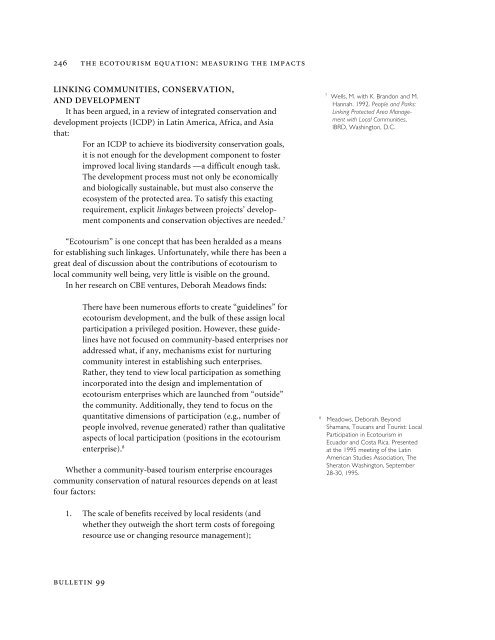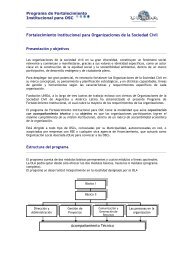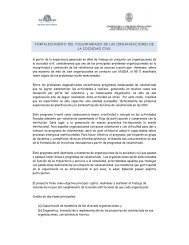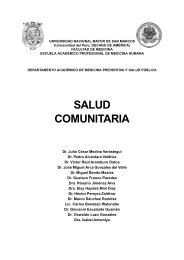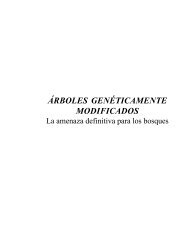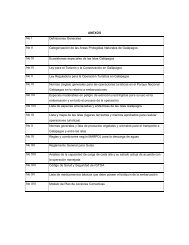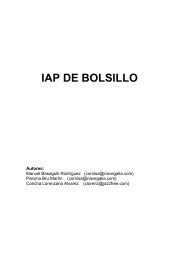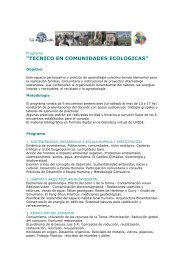Community-Based Ecotourism Development - Yale University
Community-Based Ecotourism Development - Yale University
Community-Based Ecotourism Development - Yale University
Create successful ePaper yourself
Turn your PDF publications into a flip-book with our unique Google optimized e-Paper software.
246 THE ECOTOURISM EQUATION: MEASURING THE IMPACTS<br />
LINKING COMMUNITIES, CONSERVATION,<br />
AND DEVELOPMENT<br />
It has been argued, in a review of integrated conservation and<br />
development projects (ICDP) in Latin America, Africa, and Asia<br />
that:<br />
For an ICDP to achieve its biodiversity conservation goals,<br />
it is not enough for the development component to foster<br />
improved local living standards —a difficult enough task.<br />
The development process must not only be economically<br />
and biologically sustainable, but must also conserve the<br />
ecosystem of the protected area. To satisfy this exacting<br />
requirement, explicit linkages between projects’ development<br />
components and conservation objectives are needed. 7<br />
7<br />
Wells, M. with K. Brandon and M.<br />
Hannah. 1992. People and Parks:<br />
Linking Protected Area Management<br />
with Local Communities,<br />
IBRD, Washington, D.C.<br />
“<strong>Ecotourism</strong>” is one concept that has been heralded as a means<br />
for establishing such linkages. Unfortunately, while there has been a<br />
great deal of discussion about the contributions of ecotourism to<br />
local community well being, very little is visible on the ground.<br />
In her research on CBE ventures, Deborah Meadows finds:<br />
There have been numerous efforts to create “guidelines” for<br />
ecotourism development, and the bulk of these assign local<br />
participation a privileged position. However, these guidelines<br />
have not focused on community-based enterprises nor<br />
addressed what, if any, mechanisms exist for nurturing<br />
community interest in establishing such enterprises.<br />
Rather, they tend to view local participation as something<br />
incorporated into the design and implementation of<br />
ecotourism enterprises which are launched from “outside”<br />
the community. Additionally, they tend to focus on the<br />
quantitative dimensions of participation (e.g., number of<br />
people involved, revenue generated) rather than qualitative<br />
aspects of local participation (positions in the ecotourism<br />
enterprise). 8<br />
Whether a community-based tourism enterprise encourages<br />
community conservation of natural resources depends on at least<br />
four factors:<br />
8<br />
Meadows, Deborah. Beyond<br />
Shamans, Toucans and Tourist: Local<br />
Participation in <strong>Ecotourism</strong> in<br />
Ecuador and Costa Rica. Presented<br />
at the 1995 meeting of the Latin<br />
American Studies Association, The<br />
Sheraton Washington, September<br />
28-30, 1995.<br />
1. The scale of benefits received by local residents (and<br />
whether they outweigh the short term costs of foregoing<br />
resource use or changing resource management);<br />
BULLETIN 99


